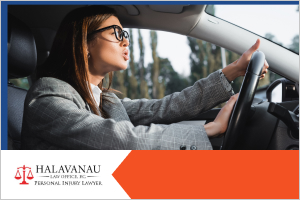
Car accidents can happen anytime and anywhere. We all know that if you are involved in a car accident, the responsible party should cover the damages. But what happens if someone uses your car and gets in an accident? Who will cover the claims from victims? Will an owner be potentially responsible for all or part of the damages?
This blog article will go through this tricky situation. We will help you uncover the answer to this question and provide possible legal options you can take. Our car accident lawyer is an experienced personal injury attorney. If you are involved in a car accident, contact our office today for a free consultation!
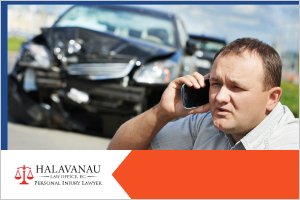
In California, a vehicle owner can be accountable for damages due to the accident involving their vehicle. This law does not excuse the owner's responsibility even though another person is driving the car. In addition, if the driver was running an errand or employed by the car owner and was within the scope of his employment at the time of the accident, then the car owner can be liable for the full scope of damage under "respondeat superior" doctrine.
Once you allow another person to use your vehicle, you are responsible for any damages they might cause while operating your vehicle up to the limits established by law.
The car owner's insurance policy is the first source of coverage, even if a car is driven by someone else. In the event of a car collision where permissive drivers caused the collision, the owner's liability is limited to:
The at-fault driver will be another source to shoulder the damages claimed in excess of the above limits. And certainly, the damages imposed on the car owner can also be covered by the owner's insurance on the vehicle.
The big caveat to the above is if the owners are found negligent, the above limitations may not apply. For example, if the owner lends a car to an unlicensed driver, the owner is liable for their own negligence. Victims may pursue claims against the owner without limitations in such a scenario.
There are instances when the responsible driver is a third party in a car collision case. Suppose the driver accountable for the accident is not the one driving your car. In that case, it is still advisable to file a claim against them for the property damage to your car. Alternatively, if you submit a claim to your own insurance, assuming you have full coverage, your insurance carrier will cover the damages subject to your deductible and will then seek reimbursement from the other driver's insurance. That will include an attempt to recover your deductible.
In addition, if the person driving your car sustained bodily injuries, they can also sue the responsible driver for medical bills and other damages.
The at-fault driver's insurance will kick in once their auto insurance company approves your claim. In states like California, drivers must carry liability car insurance policies that cover damages of the individuals caused by an at-fault driver up to the policy limits. The minimum policy limits in California are $15,000 per person and $30,000 per accident for bodily injuries, as of the time of writing this article. There are also ongoing discussions about raising these limits, which may happen on the legislative level in the near future.
Our car accident attorney is experienced in handling similar cases. If you encounter a similar accident, contact our law firm now.
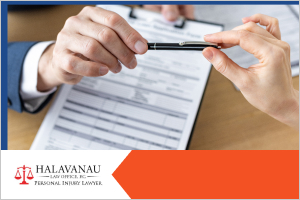
According to the state's law, the owner's auto insurance carrier will act as the primary coverage for car accidents. In contrast, the at-fault driver's insurance policy will only serve as secondary insurance. Most car insurance policies allow a certain amount to cover bodily injuries and property damages.
It is a common misconception to assume that the at-fault driver's insurance company will cover the damages. The laws surrounding car insurance policy and third-party liability are complicated. You must seek professional help from an attorney. Contact our law offices for a free consultation if you find yourself in such a predicament.
The short answer is that an at-fault driver is liable for the injuries and such liability can either be covered by insurance or personal assets if the insurance policy limits are lower than damages. Accident victims who suffered injuries from a car crash using a borrowed car can still file a personal injury claim with the at-fault driver insurance, their own insurance company, and the car owner's policy. Whether some or all of the insurance policies will be triggered depends on many factors that require an in-depth analysis. An experienced attorney will be able to help with such analysis.
A car collision victim can seek compensation for both economic and non-economic damages.
The injured victim must obtain the at-fault driver's contact and insurance information. At the same time, the reckless driver and the car owner should also receive the victim's insurance and contact information.
If you suffered an injury from a vehicle collision or are involved in one, you need to seek medical services immediately. It is best to have a medical professional evaluate you for any health concerns.
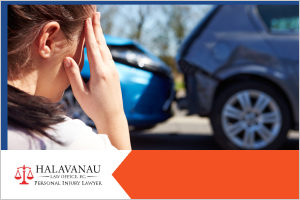
There are instances when the at-fault driver is the one driving your car. In this situation, things can turn out differently. As stated in earlier sections, auto insurance in California, at least the liability and property damage portions of it, follows the car and not the driver.
Because of this, the car owners will need to use their auto insurance policy for any vehicular damages and bodily injury claims by injured parties who were not at fault. However, if the owner's insurance coverage is insufficient, the at-fault driver will need to offer their insurance coverage to pay the remaining damages, if the insurance is available.
Lending your car to another person could result in unwanted liabilities. Because of this reason, you must refrain from lending your vehicle to someone you barely know.
Vehicle Code Section 17150 provides the legal context of permissive use. This law states that if the owner knowingly lends their motor vehicle to another person, they also accept the liability for any damages they might cause while operating their car. Providing permission to another person is proof of permissive use of the vehicle.
In contrast, a non-permissive use indicates that the driver is not authorized to operate the vehicle. The car owner is not responsible for any damages the driver might cause in this situation. This is also applicable to stolen cars.
As previously indicated, the car owner's insurance will act as the primary coverage. In contrast, the driver's insurance will only kick in if your coverage is insufficient. The driver may also be responsible personally if he has no insurance and the owner's insurance coverage is not sufficient to cover the damages.
As the primary insurance holder, you will need to pay the remaining claims if the driver using your car does not have insurance. However, you still have the right to file a lawsuit against them. An experienced car accident lawyer can help you understand your case and open up possible legal options you may take in such a situation.
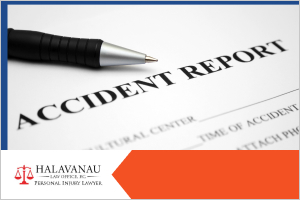
After the accident, you need to take steps to recover compensation for the damages that you incurred. Your goal as the victim of a car collision is to preserve as much evidence as possible. Even if you are not driving your car, you are still the primary insurance holder, and keeping proof is what you need to do as soon as possible.
In all states, your time to dispute the accident that damaged your car is limited. Hiring an experienced car accident attorney can help you with the legal process and obtain your compensation efficiently.
Following the accident, it is prudent to call the police right away. If you are the vehicle driver, you need to start taking photographs or video footage of the accident. These shreds of evidence are vital when proving your claims to the insurance company. If you are not the driver, can help the person using your car to understand what they should do following a car accident.
If witnesses are present, you can also try to obtain their contact information. These witnesses can testify on the accounts of the accident. You can also obtain a copy of the police report of your accident.
If you, the driver, or the passenger sustained an injury, you should contact emergency services. It is also essential to remember that accident damages can manifest after a few days from the accident date. It's better to keep yourself prepared.
You must understand your auto insurance policy. Although all states have a minimum required auto insurance coverage for all drivers, your policy might differ. It would help to know the damages covered and how much is covered for each damage (i.e., property damages, bodily injuries, wrongful death).
There are also factors in which your premiums might increase. Knowing these situations can help you avoid problems that propel your insurance deductibles. When you hire an attorney, he or she can also help you understand your options better.
Hiring a lawyer to assist you with the legal process after your car accident case provides a lot of advantages. The attorney can help you negotiate and maximize the compensation you can receive for the damages dealt with your car. Even if you are not the one driving your car when it was damaged, you can still file a claim with the help of an attorney.
Furthermore, car accident cases vary from each other. It's vital that you thoroughly understand the legalities behind your case to take appropriate action, including filing a lawsuit.
Insurance companies will often do their best to look for a way to deny or limit your claims. Seeking the help of an experienced attorney can prevent this from happening.
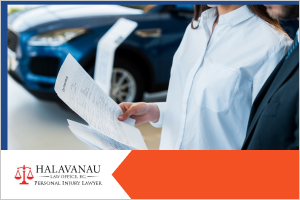
Now that you know the possible risks of lending your car to another person, protecting yourself is critical. Your first instinct might be not to allow anyone, even a friend, to borrow your car. While this is logical, lending your car to someone you trust can be inevitable.
What you need to do is to understand the finer details of your car insurance policy. You need to speak with your insurance representative and ask about the extent of your insurance coverage. Ask them what accident your insurance covers.
You might even find out that your insurance is lacking, and there are policies you want to include in your insurance. Doing this will help you ensure that you are prepared for an unexpected incident that might trigger insurance coverage issues. Accidents happen unexpectedly, and the best way to combat this is to remain prepared.
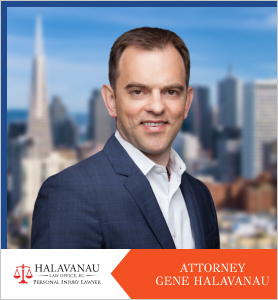
Car accidents can happen anytime, especially when you least expect them. Suppose a family member or a friend borrowed your car and got involved in an accident. You must speak with a local personal injury attorney as soon as possible. Employing the professional assistance of a personal injury attorney can help you maximize your compensation and build a solid defense for your case.
Contact our law firm now if your car is involved in a car accident! You can reach us by dialing +1 415-870-7293. You also have an option to submit your case on our site by completing our contact form.
Search Our Site
Request Your Free
Confidential Consultation